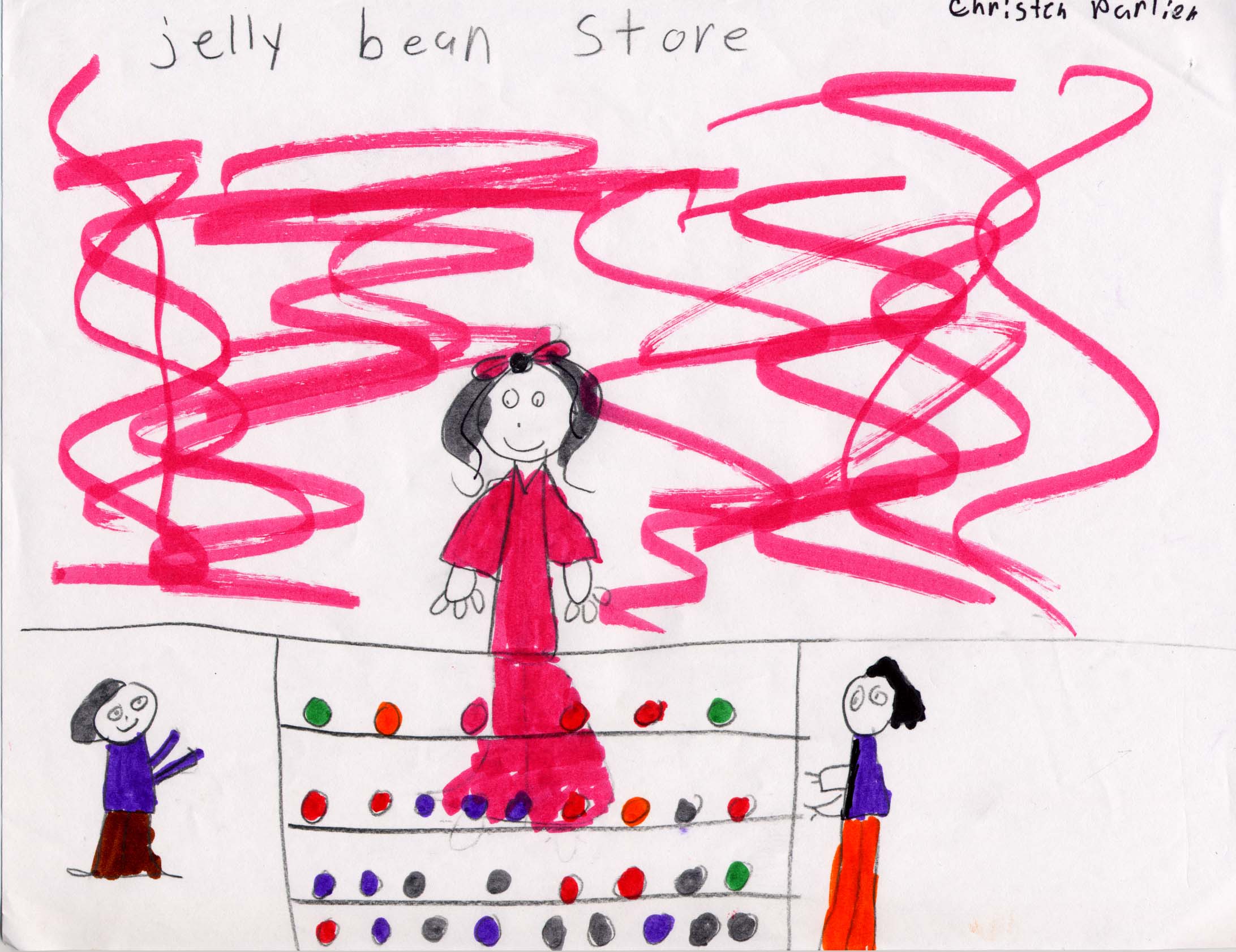Christin's drawing of a Mathematician

Reflection
Math Assessments
The following includes individual math assessments, a significant portion of the entire assignment.
After
interviewing both students, I discovered that their interviews reflected
their performance during math class. Amber, who is always at the top of
her class, is usually on-task, but even if she is not, she always "gets
it." She is comfortable asking questions and seems okay with needing extra
help. She wants to figure things out. Amber is a good student in all subjects
and just received several citizenship awards.
Christin...I love her! Mrs. McKinney informed me that last year, when Christin
was in fourth grade, she could not count to 100. She counted using her
fingers and touching her face...so naturally, she ran out of fingers. She
has made a great deal of improvement and is now able to multiply 3 digit
numbers! She is starting to work on division now. Mrs. McKinney allows
her to do the same work as the other fifth graders, but it is usually a
little different. Several weeks ago, the fifth graders were working with
the distributive property in multiplication using 3 digit numbers times
single digit numbers; seeing that the distributive property was really
confusing, Christin continued by multiplying the same problems in the traditional
way. Christin, as her interview reflects, is very willing to ask for help
and is okay with the fact that math is hard for her. Christin seems
to be able to think about math in lots of different ways and use lots of
different means to help her - she is comfortable asking a teacher and a
friend for help, using rocks as manipulatives and eating during math class!
Christin's drawing of a Mathematician

Reflection
Completing
this math assessment was very interesting! I found myself learning quite
a bit about both students and they did not even realize that I was trying
to figure out all sorts of things regarding their attitudes towards math!
I picked a "higher" student, Amber, and a "lower" student, Christin, to
get an idea of both ends of the mathematical spectrum. As a teacher, it
would be very important to take some time at the beginning of the year
and ask students these questions. It really tells you a huge amount of
information about a student in such a simple way. Drawing a mathematician
is would be an excellent way of assessing your students in an open, creative
way, but still allows their abilities and attitudes to stand out. Math
is such a difficult subject for so many kids, and I think it would be a
good idea to let kids know that what they think about math is important,
whether it is positive or negative. Taking some time to really discuss
math also shows students that math is important to you and to the way we
live.
I was surprised and humored
by some of the answers I received during the interview. Christin was very
honest regarding any question that I asked her - she was embarrassed to
ask boys for help, she knew she had a difficult time with math, and she
just "didn't want to do it" unless reward time was involved. For being
behind, I thought Christin had some good ideas about math; she seemed to
want to find new ways to do math if she needed help. Whenever she asks
me for help in class, I always ask her, "Well...what do you think?" Most
of the time, she has the correct answer. In some ways, I think Christin
was more advanced in her ways of thinking about math that Amber may have
been. Christin, through my observations during class and from the interview,
seems to be aware that there is certainly more than one way to do math.
Perhaps part of this is Mrs. McKinnney's differentiating the math lessons
for Christin sometimes. Christin seems to be very accepting of the fact
that she has trouble with math and seems to try her best. I am concerned
with how a teacher would deal with a child that was not very accepting
and acted out in frustration.
Amber, as stated before, is a very good student.
She could sleep through class and pass the test! Amber has very practical
views of math - you need math to get through life. I would definitely use
this way of assessing children again in my student teaching and during
my teaching career. I think I would do it at the beginning of the year
and make out a plan for each student and what I could do to help them with
math. I also think it will be important for me to use this assessment during
my student teaching since I will be entering the class in the middle of
the year without any prior knowledge of each student.